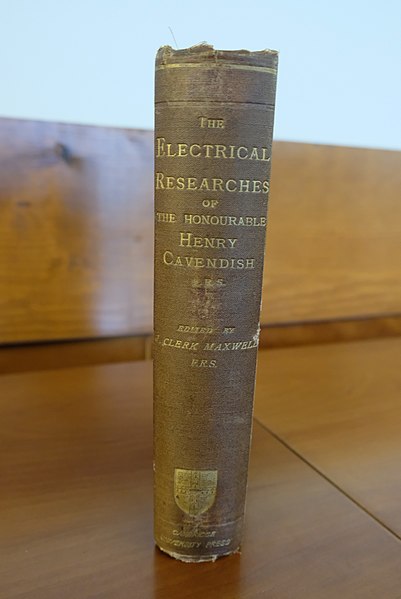Henry Cavendish was an English natural philosopher and scientist who was an important experimental and theoretical chemist and physicist. He is noted for his discovery of hydrogen, which he termed "inflammable air". He described the density of inflammable air, which formed water on combustion, in a 1766 paper, On Factitious Airs. Antoine Lavoisier later reproduced Cavendish's experiment and gave the element its name.
Henry Cavendish
Cavendish's apparatus for making and collecting hydrogen
1879 copy of "The Electrical Researches of the Honourable Henry Cavendish F.R.S"
Title page of a 1879 copy of "The Electrical Researches of the Honourable Henry Cavendish F.R.S"
Hydrogen is a chemical element; it has symbol H and atomic number 1. It is the lightest element and, at standard conditions, is a gas of diatomic molecules with the formula H2, sometimes called dihydrogen, but more commonly called hydrogen gas, molecular hydrogen or simply hydrogen. It is colorless, odorless, tasteless, non-toxic, and highly combustible. Constituting approximately 75% of all normal matter, hydrogen is the most abundant chemical substance in the universe. Stars, including the Sun, primarily consist of hydrogen in a plasma state, while on Earth, hydrogen is found in water, organic compounds, and other molecular forms. The most common isotope of hydrogen consists of one proton, one electron, and no neutrons.
Purple glow in its plasma state
The Space Shuttle Main Engine burnt hydrogen with oxygen, producing a nearly invisible flame at full thrust.
Hydrogen gas is colorless and transparent, here contained in a glass ampoule.
A sample of sodium hydride








